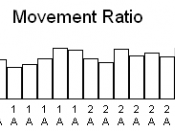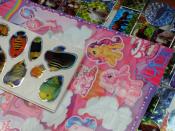What is "Learning"? Discuss "classical conditioning" and "instrumental conditioning", and explain, with examples, their applications to marketing practice.
Learning is a relatively permanently change in behavior caused by experience. It is an ongoing process, our knowledge about the world is being revised constantly as we are exposed to new stimuli and receive feedback that allows us to modify our behavior.
Behaviorial learning theories assume that learning takes place as the result of responses to external events. Psychologist approach the mind as a "black box" and emphasize the observable aspects of behavorial, as depicted in the diagram below. The observable aspects consist of things that go into the box (the stimuli, or events perceived fromt eh outside world) and the things that come out of the box(the responses, or reactions to these stimuli).
This view is represented by two major approaches to learning: classical and instrumental conditioning. According to this perspective, people's experiences are shaped by the feedback they receive as they go through life.
Similarly, consumers respond to brand names, scents, jingles and other marketing stimuli based on the learned connections they have formed over time.
Classical conditioning occurs when a stimulus that elicits a response is paired with another stimulus that initially does not response on it own. Over time, this second stimulus causes a response because it is associated with the first stimulus. This phenomenon was first demonstrated in dogs by Ivan Pavlou's god experiments when doing research on digestion in animals.
- Pavlov induced classical conditioning learning by pairing a neutral stimulus (a bell) with a stimulus known to cause a salivation response in dogs (he squired dried meat powder into the mouths)
- The powder was an unconditioned stimulus (UCS) because it was naturally capable of causing a response.
- Overtime, the bell become a conditioned...


